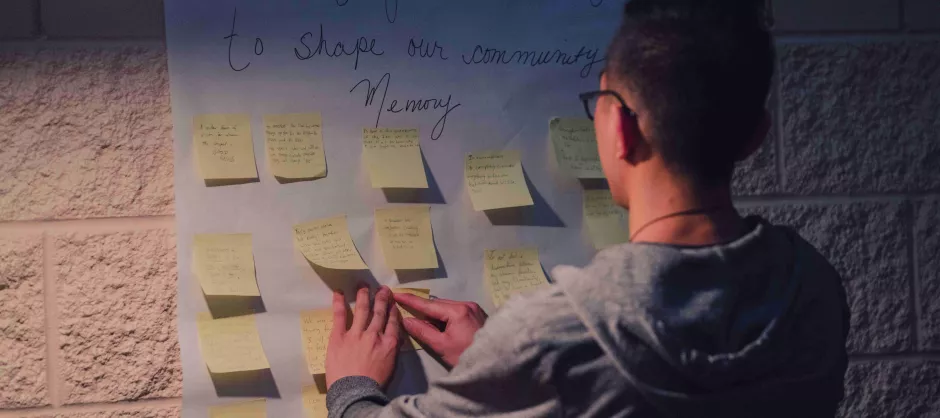
An Invitation for Everyone
Communal planting is the invitation to offer our full selves to God as we reach our campus together. It turns the daunting, fear-inducing, and at times exclusive narrative of outreach into a beautiful call to bring our uniqueness. Like a joyful child running around the playground, calling out to their friends to join them, God is calling all of us – yes all of us – to join the Lord of the harvest.
We want to see our whole campus reached by the transforming love of Jesus. In Isaiah, the Lord declares the desire that “salvation may reach the ends of the earth.” That includes those we already know in our InterVarsity chapters and the students we do not yet know who hang out at the multicultural center every Wednesday night or who are on the bhangra team. We believe that God deeply loves these communities on campus – far more than we ever could. How can we partner with God and each other to honor and reach our campus?
What is Communal Planting?
Communal planting is an inclusive, interdependent posture of planting that answers questions of “Am I a planter? Can I be included?” with a resounding “YES!” It replaces the predominant single planter narrative (one person reaching out to an individual/group) with a new communal invitation through three major components: contributing our gifts, discerning our communal call, and hosting belonging.
This resource will walk through each of those components and offer simple next steps to help you get started.
1. Contributing Our Gifts
It is often tempting to excuse ourselves from planting initiatives because we think we are not skilled or because we do not possess the giftings frequently associated with planting, such as extroversion or eloquence. But for God, those gifts are not any better than the rest. When every one of us brings our individual gifts, the community is blessed and strengthened. Just think, what would the Avengers be without Captain America’s leadership skills? Or what would Team Rocket be without Meowth’s savviness?
- Knowing your own gifts. Sometimes we may not want to name our gifts for fear of being seen as egotistical. However, recognizing gifts can be a beneficial exercise of self-awareness and even an act of worship. Individuals get to better understand themselves and see how Creator God has uniquely designed them. Quite often, people struggle to name their own giftings but are more able to affirm them in others.
- Deepen group interdependence. Your gifts are so important! And so are the gifts of your friends and the partners God has given you to start new things. Seeing the community’s giftings allows us to internalize the mentality that we need each other. It builds rapport and trust within the team, and furthermore, it cultivates reliance on God who is the ultimate source and giver of these good gifts.
2. Discerning in Community
We see so many times in the Bible that new ministries begin through group effort – not that of a single person. Communal Planting shifts our thinking from an individualistic ask of “what can I start” to a more communal consideration of “what can we start together?”
The people we know, the places we frequent, the majors we’ve selected are all areas where God has placed us to reveal God’s love. Our unique networks are not mere happenstance; they too are a gift from God. Thinking intentionally about our networks is an opportunity to acknowledge that we are called to love our friends intentionally. Communal discernment can show us how God is calling your chapter to reach your friends too. Communal network mapping is the first step in God calling the whole community together.
Creating a network map together helps us see where God has already placed us as well as where God might be leading us. Start by making your own network map and then combining it with your friends.
Never made a network map before? Click here to get started.
3. Hosting Belonging
Each community needs spaces for Belonging – Engaging – Committing or “BEC.” “Belong” events set the foundation for spiritual engagement and faith commitment later down the line.
Throughout the Gospels, Jesus spends much of his time with others. These seemingly informal hangouts become the setting where people receive healing and teaching or power of Jesus. Social events are more than just sharing a meal or attending a concert together. When we hang out like Jesus did, our social gatherings carry eternal significance. They become spaces where we can build trust and belonging with Christians and non-Christians alike. Isn’t this the kind of community Jesus calls us to?
Now you’re ready to plan your first “Belong” event! Think of the community you are trying to reach. What could be a way to gather people and create belonging? Will it be a bubble tea taste test? A chaat night? Or even a tour around campus? The options are endless.
Try it out and see how God will meet your community and those you are reaching!
Click here for more information about BEC Study
For more on Communal Planting coaching contact aam@intervarsity.org

